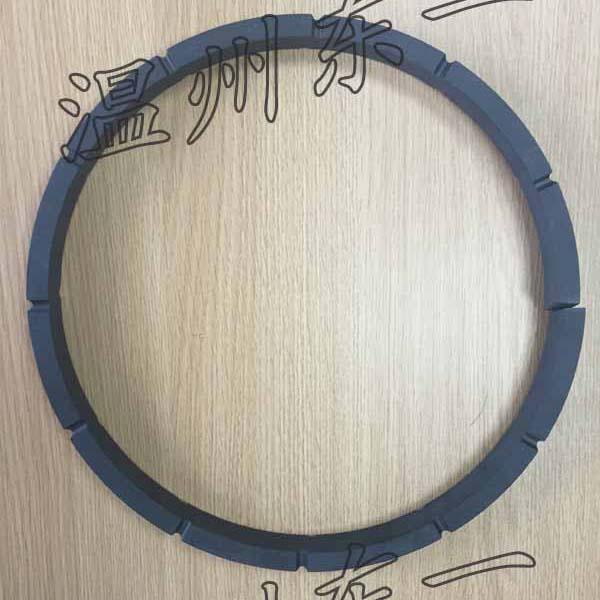I’m a lay citizen who has never set foot in the Supreme Court, but has closely followed the judgements of all the courts, from the trial courts to the apex court, for three decades. I’m someone who has witnessed the transactions of courts played out in lawyers’ offices on a daily basis for longer than I can remember.
Which is why I am concerned about senior advocate Siddhartha Dave’s derision of criticism of the Chief Justice of India. (See Dave’s piece here, which is in response to a Newslaundry piece by Jayashree Arunachalam.) Control Butterfly Valve

Dave’s comment, to my mind, casts him as the self-appointed protector of an enclosure that must remain one. I have long made it my business to comment on the business of courts – judgements, judicial and extrajudicial conduct of judges (the untenable comparison of the temple dhwaja to the constitution by the CJI, for instance), stellar examples of constitutional affirmations (the Bilkis Bano remissions case), and specific (mis)interpretations or ‘usurpations’ of the constitution and rule of law by governments (again, to echo Justices Nagarathna and Bhuyan in the Bilkis Bano remissions case, in a specific reference to Gujarat) – that have emanated from the hallowed environs of courts over decades.
My public writing and teaching on jurisprudence and the question of judicial interpretation has always drawn on my activist engagement with human rights and civil liberties and my professional engagements as a sociologist. This, I believe, has contributed in some small measure to lawyerly abilities to comprehend the law beyond the enclosures of courts and to open up the court to wider critical debate. This is something I have discovered through lawyers and discerning publics who have reached out to me to discuss case matters further or, several times, to request me to look at a judgement and help unpack it for them.
I am not alone. I’m just one of the many busybodies outside courts who make anything to do with the constitution, rule of law, and due process their business.
I do not believe that setting foot in the precincts of the Supreme Court, or any court for that matter, is a necessary qualification for speaking about what is troubling about the judicial process. By labelling sharp criticism of courts and judges as “browbeating”, senior advocate Dave draws a false equivalence. Activists may “stray into the area of a rant”, garnering research findings, statistical analyses, experiential accounts of collective harms, and reasoned claims to the constitution when they seek constitutional remedies.
Yet, the final power – of making a decision, of allowing or disallowing a practice, of affirming or denying personal liberty, of transferring title and usufruct of places of worship, of ruling that demonetisation did not violate the proportionality standard – rests with the judges of the Supreme Court. And these are decisions citizens must live with and endure.
Therefore, when the court decides a case inexplicably in tune with what the executive desires, there must be questions. This is especially so in cases where this turn follows lengthy, painstaking arguments and hearings by activist petitioners from stigmatised communities (the marriage equality case or the abrogation of Article 370), or victims of gruesome violence (Gujarat 2002 cases), those that support them through the legal process, and their lawyers.
These are the cases that are, in Dave’s words, related to “self-proclaimed ‘sensitive’ matters”, or constitutional matters. And yet it is these very questions that have a cascading effect and illuminate the pathways to just futures for judges, lawyers and laypersons alike in other cases as well, even if they cannot roll back the one in which justice did not win the day. Petitioners, activists and their counsels together engage in Sisyphean labour to ensure that justice is seen to be done.
Bilkis Bano states this clearly in her statement following the decision of the Supreme Court on January 8, 2024 that remissions granted to persons convicted of gruesome crimes on several counts in her case were based on fraudulent derailment of due process, and ordering the convicts to surrender to prison authorities in two weeks. It is apt to quote her:
“It feels like a stone the size of a mountain has been lifted from my chest, and I can breathe again. This is what justice feels like…I have said before, and I say again today, journeys like mine can never be made alone…A year and half ago…I simply collapsed. I felt I had exhausted my reservoir of courage. Until a million solidarities came my way. Thousands of ordinary people and women of India came forward. They stood with me, spoke for me, and filed PIL petitions in the Supreme Court. 6,000 people from all over, and 8,500 people from Mumbai wrote appeals; 10,000 people wrote an open letter, as did 40,000 people from 29 districts of Karnataka. To each of these people, my gratitude for your precious solidarity and strength. You gave me the will to struggle, to rescue the idea of justice not just for me, but for every woman in India. I thank you…the dua that emerges from my heart today is simple – the rule of law, above all else and equality before law, for all.”
The statement senior advocate Dave makes – that the “people of India, through the Constitution, repose complete faith in the independence of a judge from the moment they take oath” – is incorrect, in my view. The people of India expect that a judge, from the moment they take oath, will rule by the constitution in which the people have reposed their faith.
It is this shared understanding of the constitution that won the day for Bilkis Bano in court in a constitutional claim that was undoubtedly “sensitive” – not faith in the judge but faith in the constitution, collectively affirmed by judge, petitioner, “activists” and lay public standing with Bilkis Bano alike.
It is interesting that the term “browbeating” is used to describe petitioners and their lawyers, not to describe the conduct of state agencies and their counsels in cases where the state is party. This insistence by senior advocate Dave strangely echoes the tone and tenor of the court’s censure of activist Teesta Setalvad in the Zakia Jafri case. I mention this in particular to demonstrate the false equivalence I referred to earlier – no amount of “browbeating” seems to change the outcomes of cases in their favour for ordinary petitioners.
Yet adjournments, unexplained changes in benches, stays on orders of other benches in the same court, remissions of sentences for persons convicted of capital crimes, indefinite deferrals, manifestly unjust incarcerations with no bail in sight, and suspended bail orders do not invite such harsh description.
The mere fact of spending decades in service as a judge proves nothing and justifies nothing. A judge will be judged by their judicial conduct, judicial reasoning, and constitutional interpretation from case to case. In these deferrals and these remissions and these exonerations, the process is the punishment for those who have suffered collective violence and unfair trials. But this fact is elided over in senior advocate Dave’s insistence that decisions must be respected as judges know best.
Sometime in the now distant past, the CJI made an oft-quoted statement: “Dissent is the safety valve of democracy.” Sure, this was a statement made out of court, in a lecture somewhere. Judges accept public engagements that come to them because they are judges. A former chief justice, during his term, extolled the virtues of progressive Telugu writers in his speeches in the Telugu states, the very states where progressive writers and poets faced the wrath of the state for being “verbal naxalites” (a term used by the then home minister Vengal Rao). Does that labelling sound eerily familiar today? One of them was in jail then, 40 years ago. He is back in custody today, out on bail and under state surveillance.
What matters to me is how that reading of progressive writing and speech affects the judge’s decisions in court. Does it at all? It is to be expected that when a judge takes a public position consonant with constitutional morality and spirit, the same public will expect that the position will guide their judicial conduct and decisions. On the other hand, when a public position erodes the fundamental basis of the constitution (the comparison of Hindu temples and their flags to courts and the constitution, for instance) as a concerned citizen, I expect that this public statement that conflated official duties with personal beliefs will not guide judicial conduct.
After all, public morality is not constitutional morality. Dr BR Ambedkar marked the clear distinction for us.
This may sound unreasonable to senior advocate Dave, but only because he believes that the constitution is the exclusive preserve of the enclosures that are courts. Nothing can be further from the truth. Every citizen of the country has a stake in the constitution, and a responsibility to affirm it in their actions. In petitioning courts and drawing parallels, in pointing out false equivalences and untenable comparisons, citizens are calling courts to account and reminding them of their fiduciary responsibility with respect to the constitution.
The CJI’s statement on dissent was made while he was judge of the Supreme Court, where he wrote one of the judgements upholding the “three great dissents” in the Puttaswamy case. Although not all dissents may be presumed to be good by the mere fact of being a judicial dissent, several, in fact, are. Justice HR Khanna in ADM Jabalpur and others in that tradition immediately come to mind. But surely, when senior advocate Dave hectors critics for challenging the wisdom of the court and deems judges to be above criticism, I cannot help but think that lawyers need to imbibe a sense of history, and an understanding of the place of disobedience in that history. They need to develop an understanding of the interconnections between activist publics (starting with AK Gopalan in the founding moment) and the court’s evolving understanding of the rule of law and the constitution.
We have a history in this country where a constitutionally informed public has educated judges on the complex constitutional conversations enabled by people’s movements and dissenting publics. Let us never forget that.
Without labouring the point or embarking on a litany of cases and dates, let me simply close by reaffirming the critical necessity of citizen engagement with the constitution, and citizen reflections on courts and judgments – especially in times when democratic politics is overawed and imperilled by an authoritarian government. The courts are a refuge in times like this and must stand by the people in calling arbitrary governments to account at every opportunity. That is the true letter and spirit of the constitution. The most minimal moves to judicial equivocation (in or outside courts) must be fearlessly critiqued.
For dissent, indeed, is the safety valve of democracies.

Air Gas Charge Valve © Newslaundry Media Private Limited. All Rights Reserved.